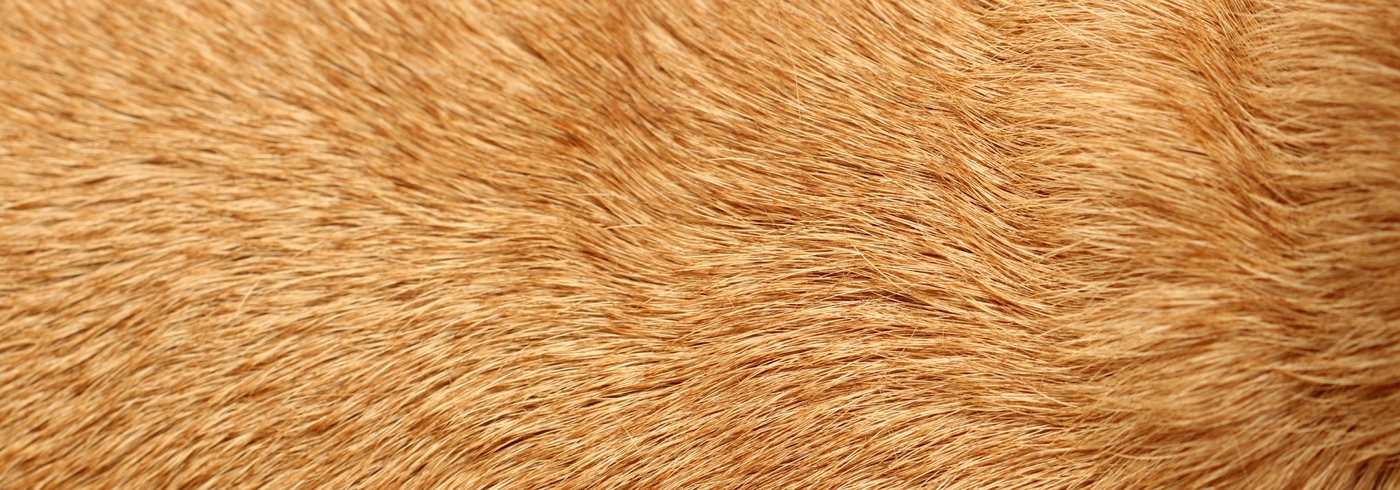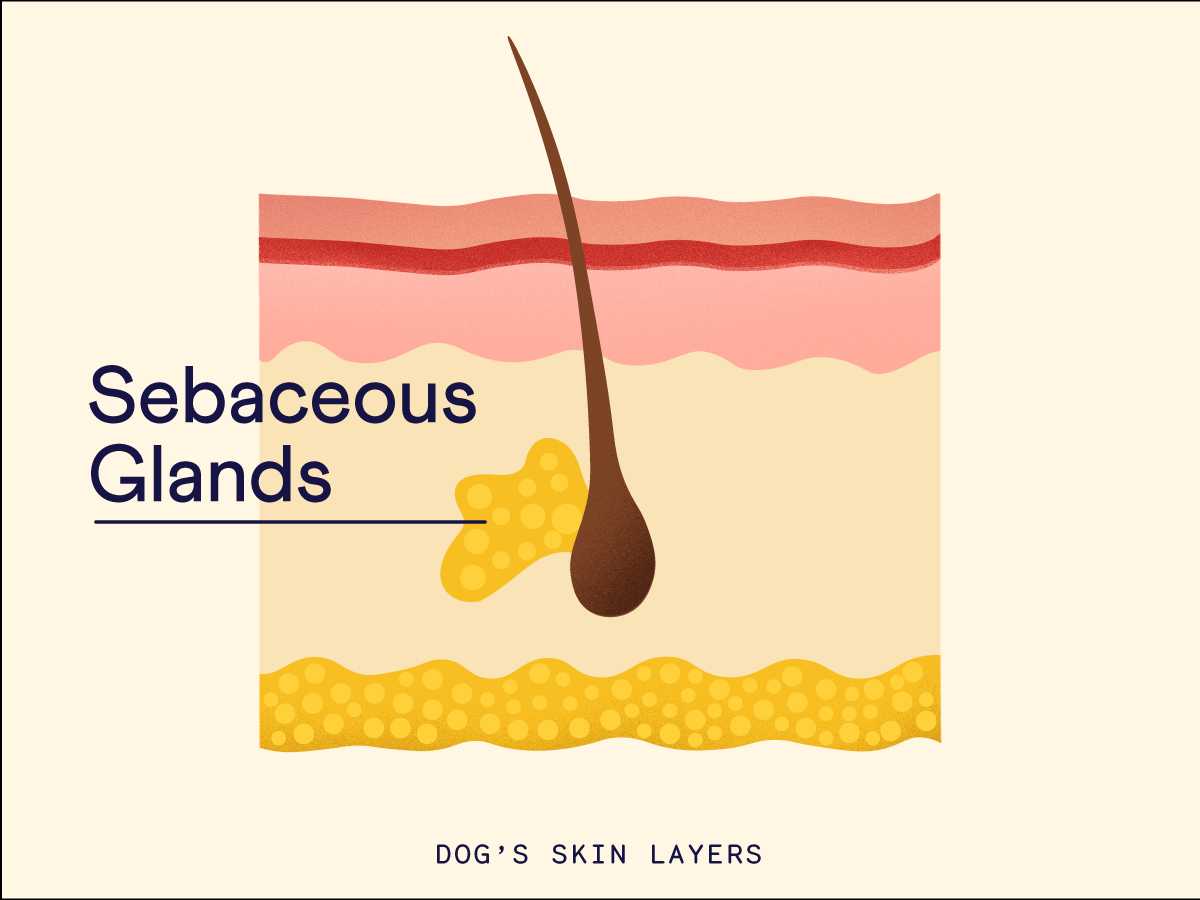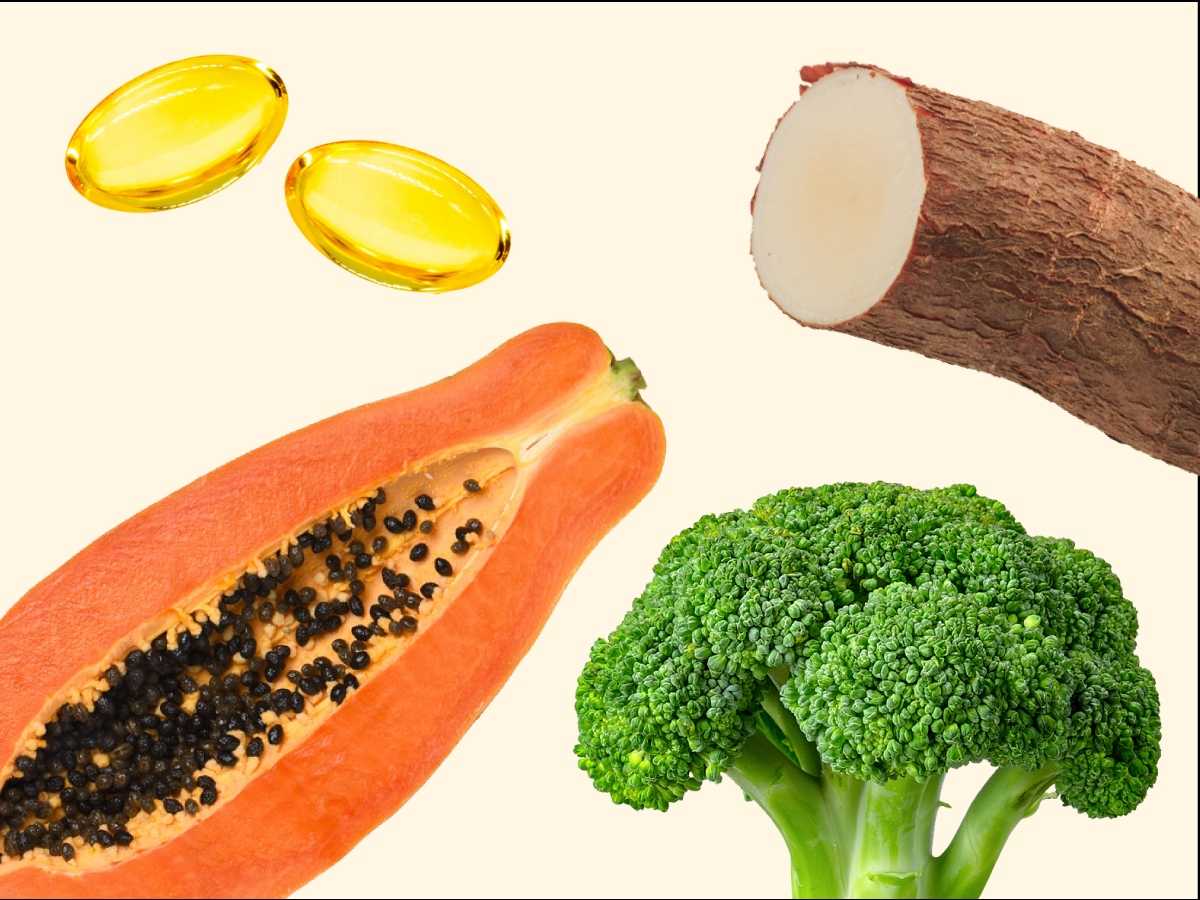
The Best Dog Allergy Supplement For Dogs With Itchy Skin
Is your dog itching endlessly? Read on for a guide to the best supplements for dogs with itchy skin — from your friends at Fin
The Best Dog Allergy Supplement for Dogs With Itchy Skin
Watching your dog itch and dig at their skin can be heartbreaking.
Our primary goal is to help our dogs live their happiest, healthiest lives as pet parents. When their skin is uncomfortable, it is on us to fix what’s wrong. Often, solving the problem comes down to finding the right dog allergy supplement. But how can you identify what makes the best supplement?
Let’s Talk Skin
Although it’s not the first thing you see when you look at your pup, their skin is one of their most important organs. It’s also the largest, making up between 10 and 15% of their body weight.
Just like us humans, a dog’s skin is made up of three distinct layers — the hypodermis (the “bottom” or “base” layer), the dermis (the “middle” layer), and the epidermis (the “top” layer that we can see).
Each of these layers performs a crucial job, and each needs to function optimally to keep your dog healthy and happy.
The skin's primary function is protection, which is why keeping it healthy is essential for your pup’s wellbeing. What’s most important to know is that the hair follicles (where your dog’s coat originates from) are located in the dermis, as are the sebaceous glands that produce the sebum (oil) that keeps their skin and coat moisturized.
Because of the environmental stress the skin and coat go through, a dog’s fur constantly sheds and is replaced with new fur — certain times of the year, like when the weather gets warmer, speed the process up further.
Most dog owners can attest to the sometimes obscene amount of hair it feels like they are vacuuming up (and rolling off their clothes) every day. This is a normal part of your dog’s bodily processes.
Now that we’ve covered what is normal for a dog’s skin and coat, let’s talk about what isn’t — itching.
Why Does Itchy Skin Happen in Dogs?
Itchy skin, known medically as pruritus, is very prevalent in dogs. However, pruritus is the unpleasant sensation that a dog gets that makes them want to scratch and not an actual disease process.
There are a few common causes of itching — allergies, infections, and parasites. In each of these situations, your dog will excessively bite, lick, or scratch their skin. This itching can happen all over the body or just occur in a single area (like their paws).
In most cases, the areas that your dog seems to scratch the most can be a key point in getting a proper diagnosis. Keep a record of when and where your dog itches and talk to your vet at your next appointment.
The constant itching can also lead to pyoderma, characterized by infected, red, and inflamed skin called hot spots. There may be hair loss in the scratched or chewed areas, and cases of severe allergies may also entail scabbing or raw and bleeding skin.
The main reason itching happens is because of the release of histamines. You’ve likely heard of antihistamines, which are medications that counteract the results of these histamines.
Essentially, histamines act like “bouncers” for your dog’s immune system. Immune cells identify allergens, and then send histamines to do everything they can to push those allergens out of the body, triggering symptoms like itching, sneezing, and inflammation.
Are Some Dogs More Likely To Itch Than Others?
Whether small, medium, or large, any dog can develop itchy skin. However, some breeds tend to be more genetically likely to deal with the problem than others. Boxers, dalmatians, labrador retrievers, and Shih Tzus, among other purebred dogs, have a greater tendency to have skin issues of all sorts, including pruritus.
What Are Common Dog Allergies?
Like humans, dogs can be allergic to just about anything. However, veterinarians see a few allergens far more frequently than others. Here’s a list of some of the top triggers of allergies in dogs:
- Fleas (known as flea allergic dermatitis)
- Seasonal allergies (pollens, grasses)
- Food allergies (grains, certain proteins, wheat, corn)
- Insect bites
Of those allergies, food allergies are the most common trigger of itchy skin. Food allergies also contribute to paw chewing and frequent ear infections. To truly determine which trigger is causing your dog’s itchy skin, veterinarians will often recommend an elimination trial.
During an elimination trial, you’ll feed your dog a special, hypoallergenic diet full of ingredients they have never eaten before. This trial will last eight to twelve weeks, and you can’t add any other ingredients to their diet, including snacks, supplements, and even chewable medications like heartworm treatments.
If your dog does not have any noticeable allergic reactions during the trial, you can slowly reintroduce foods one at a time. That way, you can narrow down which ingredient is the problem so that you can alter your dog’s diet to help them stop itching.
What Supplements Help With Allergies in Dogs?
It’s important to note that your pet should have an appointment with their veterinarian before starting any dog allergy supplement. They will take a complete history (bring your itch diary!) and do a comprehensive physical examination so that they can determine the exact cause of the itching.
Depending on that cause, your vet may need to prescribe prescription medication to help get rid of the acute symptoms before you can start maintenance medications.
That said, a few specific dog allergy supplement ingredients have proven to be more helpful than others. Knowing what to look for can help you spend your money wisely — and help your dog with their itching.
Omega-3 Fatty Acids
Omega-3 fatty acids, like those found in wild Alaskan salmon oil, can play a key role in soothing your dog’s itchiness. While omega-3s don’t work on their own to counteract allergy symptoms, they can help support other ingredients commonly found in dog allergy supplements. In addition, fish oil is excellent for skin health, which is the basis of creating and maintaining a healthy coat.
There are a few specific types of omega-3 fatty acids worth mentioning. Eicosapentaenoic acid, more commonly referred to as EPA, is an omega-3 fatty acid that frequently goes hand in hand with docosahexaenoic acid (DHA). Together they protect the skin, keep it looking beautiful and shiny, and fight off irritation.
Remember that not all sources of omega-3 fatty acids are created equal. When purchasing one for your pet, make sure to source the ingredient.
Where did it come from? How was it processed? All of these questions can help you find the most beneficial, high-quality omega-3 fatty acid for your dog.
Quercetin
Quercetin is a lesser-known ingredient that some people refer to as “nature’s Benadryl.”
Quercetin has been part of multiple pruritus studies in dogs, and the science shows us that quercetin may help symptoms associated with the body’s release of histamine.
Specifically, quercetin is most helpful for environmental allergies.
It is categorized as a flavonoid, one of many plant chemicals in the phytonutrient group. Flavonoids can be found in nearly all fruits and vegetables and are part of what makes them so colorful. In this case, quercetin comes from apples, citrus fruits, buckwheat, and even onions (which dogs can not safely eat on their own).
It works even better when used alongside bromelain (an enzyme found in pineapple) and papain (an enzyme found in papaya). It’s best to ask your dog’s veterinarian about recommended dosage and verify its safety for your pup. Like any ingredient, your dog can have an allergy to anything new. Always monitor your dog when beginning any new treatment.
Yucca
Yucca is another potentially beneficial dog allergy supplement. Although similar in name, it shouldn’t be confused with yuca (also known as cassava), a root vegetable that people often compare to a potato. Yucca is a type of outdoor perineal plant most comfortable in dry environments, and there are many different species.
Yucca is jam-packed with antioxidants and components that can help soothe itchy, irritated skin. Some pet owners turn to yucca when steroid treatment isn’t an option for their dog, although it is not considered a replacement.
The issue with yucca is that it does have a naturally bitter taste, so dogs aren’t always eager to try it.. It works best when given with other supplements that may mask its flavor or in pill form instead of as a chew. Again, check with your veterinarian before starting.
What Other Vitamins and Minerals Can Help My Dog’s Skin, Coat, and Immune System?
In addition to getting allergy relief, supporting the underlying health of your dog’s skin, coat, and immune system with the right vitamins and minerals is also vital. In fact, many people argue that this is even more important than over-the-counter dog allergy supplements, as treatment is something best left to your veterinarian. Skin and coat-specific supplements can be a huge help.
Biotin
Biotin, also known as vitamin B7, is found in bananas, eggs, and milk, to name a few. In addition to its status as a vitamin, biotin is also a coenzyme.
Although it performs many functions in the body of both humans and dogs, one of its primary benefits is its ability to help support healthy hair (or fur). It helps nourish fur and skin while also preventing them from drying out. Strong, intact skin is the goal, and biotin can be excellent at providing this to your dog.
Biotin also works hand in hand with the supplement we’ll discuss next — linoleic acid.
Linoleic Acid
While we discuss omega-3 fatty acids far more commonly, omega-6 fatty acids like linoleic acid are also vital. The main problem with adding more linoleic acid to your dog’s diet is that many of the primary sources of the fatty acid come from products that tend to be significant allergens for dogs, like corn and soy.
Luckily, other sources can offer the same benefits without as much risk of worsening your dog’s itchy skin (flaxseed being the most common).
Signs your dog may not have enough linoleic acid in their diet include dry, flaky skin, increased shedding, and slower healing.
Vitamins C and E
Although vitamins C and E perform slightly different jobs inside your dog’s body, both work in tandem to protect skin cells. Overall, these vitamins are also great for their general health and functionality.
Vitamin C functions as an antioxidant, working hard to scavenge dangerous molecules called free radicals from your pup’s system. Free radicals are responsible for a wide variety of problems, including swelling.
Vitamin C binds with these molecules and makes them more balanced, preventing them from wreaking havoc. It is also an excellent vitamin for immune system health, and foods like broccoli, spinach, and citrus are full of it.
Vitamin E works much the same way. In addition to helping prevent free radical damage (also called oxidative damage), the vitamin also helps metabolize fats and support healthy cell function. We can find natural vitamin E in many plant-based oils as well as different nuts and seeds. However, supplementation is a far safer option, as not everything we can enjoy as humans can be safely shared with our dogs.
Zinc
Zinc is the perfect complement to omega-3 fatty acids. While omega-3 fatty acids help support the coat and skin, zinc helps hydrate. It can do this by reducing the amount of water your dog loses through their skin. More hydrated skin and coats are also healthier and more resilient.
Also, much like vitamin C, zinc helps to support a healthy immune system. Because itching often leads to broken skin, a strong immune system may reduce the likelihood of infections in those areas.
Red meats and poultry are very zinc-rich, so most dogs are usually not deficient in the nutrient.
Do Probiotics Help Dogs With Allergies?
Will it help to add a probiotic supplement to your dog allergy supplement? Unfortunately, there is no clear answer to that question, but research is ongoing.
Much of the belief that adding prebiotics and probiotics to your dog’s diet can help them with their itchy skin comes down to something known as the “gut-skin axis.”
The theory behind this connection is that, although the microbiome is different in different parts of the body, it also works together as one complete system. What happens in the gut, for example, shows up on the skin as well. If the microbiome in the gut is out of whack, the skin is also likely to have issues.
Probiotics are generally beneficial for your dog’s overall health. Take the GI system, for example. Many dogs who deal with chronic issues like soft stools or diarrhea may have a microbiome imbalance.
An out-of-whack microbiome can also lead to skin yeast infections — especially in itchy, scratchy dogs.
How Can I Treat My Dog’s Allergies at Home?
Besides using a dog allergy supplement, consider other factors when treating your dog’s allergies.
Diet
If your dog is dealing with a food allergy, this can get a little more complicated and may require a specific or prescription dog food. In general, dogs should eat a diet high in protein and low in simple carbohydrates (processed carbs).
However, the type of protein may vary due to your pet’s allergies. Duck, venison, and even kangaroo-based foods tend to be lower on the potential allergen list than more common proteins like beef or chicken.
When looking for dog food, in addition to the protein choice, keep an eye out for other ingredients likely to trigger allergies. Wheat, corn, soy, and products labeled as “byproducts” or “meals” (except flaxseed meal) can all be potential allergens. Check the ingredients on your pet’s snacks as well, even if they don’t get them often.
Plain, sugar-free yogurt can also help. A single teaspoon for small dogs (and two for large dogs) can help balance their microbiome and reduce their need to itch. Again, check with your doctor before adding anything new, and monitor for GI sensitivity and other signs of an adverse reaction.
Bathing
You’ll want to help your dog’s coat from the outside, too. As the supplements and dog food are working to help keep them healthy on the inside, you can do your part to help them too. That means brushing them regularly and bathing them with a supportive shampoo when needed.
It can be hard to find the right balance, though. Some pet owners wrongly think that they need to bathe their dog every day to help reduce the itching, but that can often make things worse. Many shampoos are drying to the skin, making it even itchier. Look for shampoos from reputable companies made specifically for sensitive-skinned, itchy dogs. Many will contain oatmeal as the main ingredient.
You can also make your own oatmeal bath to avoid commercial bath products. Run a warm (but not too hot) bath, and sprinkle ground oats into the water. Let your dog soak in the bath for 10 - 15 minutes at a time, then air dry them. You can also make the ground oats into a concentrated paste and apply it to any hot spots or problem areas.
And finally, brushing. The key to brushing your dog is finding a grooming tool that helps remove any extra fur without further irritating the skin. Getting the fur off can help more than just your furniture — it can also help your dog regenerate their skin and fur more efficiently.
The renewal process is ongoing, but when something happens to stop it from working the way it should, the build-up can have adverse effects on the skin and coat.
Perform Regular Checks
If your dog is infamous for their itchy skin, make a point to do regular checks at home (especially during allergy season).
Pay attention to where your dog seems to be itching the most because many signs of irritation and infection may not be evident at first. Part their fur and look at the skin, as well, because fur can hide a lot of serious issues.
In addition to looking at your dog’s skin health, check their ears too! Frequent ear infections can have an allergic component, and putting all those pieces together can help your vet make a diagnosis and get your pup the proper treatment.
While we’re all excellent at keeping an eye on our pet’s health, no one is better than their doctor. Regular wellness appointments with your vet, which should occur at least once a year with younger dogs and twice a year with elderly pups, are vital even if they’re not having problems.
Catching issues as early as possible increases the likelihood that you and your vet can treat and manage them more effectively.
Can My Dog’s Itchy Skin Be Cured?
The purpose of using dog allergy supplements and other home care techniques is not to cure your dog’s itchy skin. Unfortunately, because itchy skin is not a medical condition (it’s a symptom), there is no “cure” for the issue.
Instead, we aim treatments at managing the itch and helping to reduce it as much as possible, especially for dogs who deal with seasonal allergies. It’s crucial to understand this to adjust the way you look at the techniques you use to help your dog.
In Summary
The right dog allergy supplement can make a big difference in your dog’s life. But an even more crucial part of keeping your dog happy, healthy, and itch-free is to support their skin and coat health before problems can occur.
That means using vitamins and minerals, as well as the proper diet, to keep your dog in their prime. After all, isn’t the goal of a pet owner to get as many years with your pet as you can?
At Finn, we’re right there with you.
Sources:
Itching (Pruritus) in Dogs - Dog Owners | Merck Veterinary Manual










Comments: